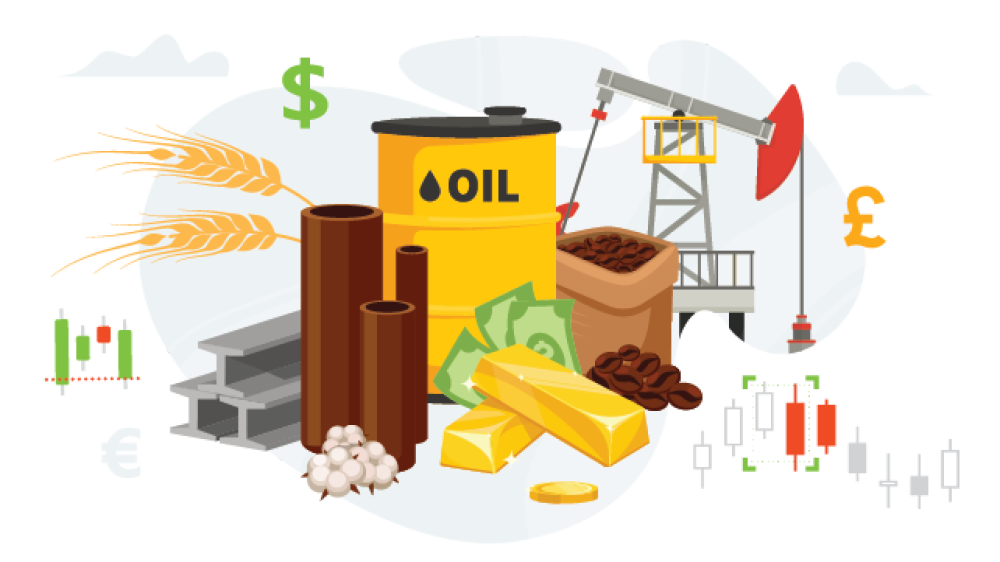Affect of commodity prices on Yarn rates
USD, NYC, KCA, IFL PSL and Crude Oil

It is difficult to predict the exact future of the Pakistan textile industry, as it is influenced by a variety of factors such as global economic conditions, changes in consumer demand, and government policies. However, the textile industry is a major contributor to Pakistan's economy and is likely to continue to play a significant role in the country's growth. The textile industry in Pakistan is expected to benefit from the China-Pakistan Economic Corridor (CPEC), which is a large infrastructure and development project aimed at increasing trade and investment between the two countries. Additionally, Pakistan's textile industry is also expected to benefit from the growing demand for sustainable and environmentally-friendly textiles. US Dollar: The exchange rate between the US dollar and the Pakistani rupee can have a significant impact on Pakistan's textile industry. A strong US dollar can make Pakistani textile exports more expensive for foreign buyers, which can make it harder for textile manufacturers in Pakistan to compete with other countries in the global market. This can lead to a decline in textile exports and a decrease in revenue for the textile industry. On the other hand, a weaker US dollar can make Pakistani textile exports more affordable for foreign buyers, which can increase demand for textile products from Pakistan and help to boost the textile industry's revenue. Additionally, a weaker US dollar can also make it more expensive for textile manufacturers in Pakistan to import raw materials and machinery from other countries, which can increase production costs and make it more difficult for textile manufacturers to compete. NYC Cotton Rate: The cotton prices in New York can have an impact on Pakistan's textile industry, as Pakistan is a major cotton producer and a large portion of the textile industry relies on cotton as a raw material. The cotton prices in New York are determined by supply and demand in the global cotton market. When the cotton prices in New York rise, it can increase the cost of raw materials for textile manufacturers in Pakistan, which can make it more difficult for them to compete in the global market. Conversely, when cotton prices in New York fall, it can decrease the cost of raw materials for textile manufacturers in Pakistan, which can make their products more competitive in the global market. Additionally, fluctuations in cotton prices can also affect the profitability of cotton farmers in Pakistan, which in turn can impact the availability and price of cotton for textile manufacturers in Pakistan. Crude Oil Rate: Crude oil prices can have an impact on Pakistan's textile industry, as the cost of energy is a significant factor in the production and transportation of textile products. When crude oil prices are high, it can increase the cost of energy for textile manufacturers in Pakistan, which can increase their production costs and make it more difficult for them to compete in the global market. Additionally, high crude oil prices can also increase the cost of transportation, making it more expensive to ship textile products to foreign markets. On the other hand, when crude oil prices are low, it can decrease the cost of energy and transportation for textile manufacturers in Pakistan, which can make their products more competitive in the global market and increase their profitability. It should be noted that it's not the sole factor that affect the textile industry, there are multiple other factors that play a role in the success of textile industry. KCA Spot Rate: The Karachi Cotton Association (KCA) spot rate is the daily price of cotton in the Pakistani market, as determined by the KCA. The KCA spot rate is based on the price of cotton in the global market, as well as supply and demand in the Pakistani market. The KCA spot rate is considered a benchmark for cotton prices in Pakistan and is widely used by textile manufacturers, traders, and cotton growers in the country. The KCA publishes the spot rate on a daily basis and is usually considered as the main reference point for pricing of cotton in the country. The KCA spot rate can be influenced by various factors such as global cotton prices, weather conditions, crop yields, and government policies. IFL PSL: IFL PSL rate refers to the Indus Fine (IFL) and Pakistan Synthetic Limited (PSL) Rate. It's a pricing mechanism used to determine the price of polyester staple fiber (PSF) in Pakistan. The IFL PSL rate is determined by the average price of polyester staple fiber (PSF) in the international market and the prices of the two major PSF manufacturers in Pakistan, Indus Fine (IFL) and Pakistan Synthetic Limited (PSL). The IFL PSL rate is used as a benchmark for pricing PSF in Pakistan, and it's widely used by textile manufacturers, traders and other industry stakeholders. It's important to note that the IFL PSL rate fluctuates with the change in global prices of the raw materials used to produce PSF, such as crude oil and natural gas, and with the local demand and supply of PSF. This is why Sutarmandi has created a live platform for these commodities. These prices are updated daily to help procurement professionals and traders see the market conditions at a glance.
Posted 1 year ago


